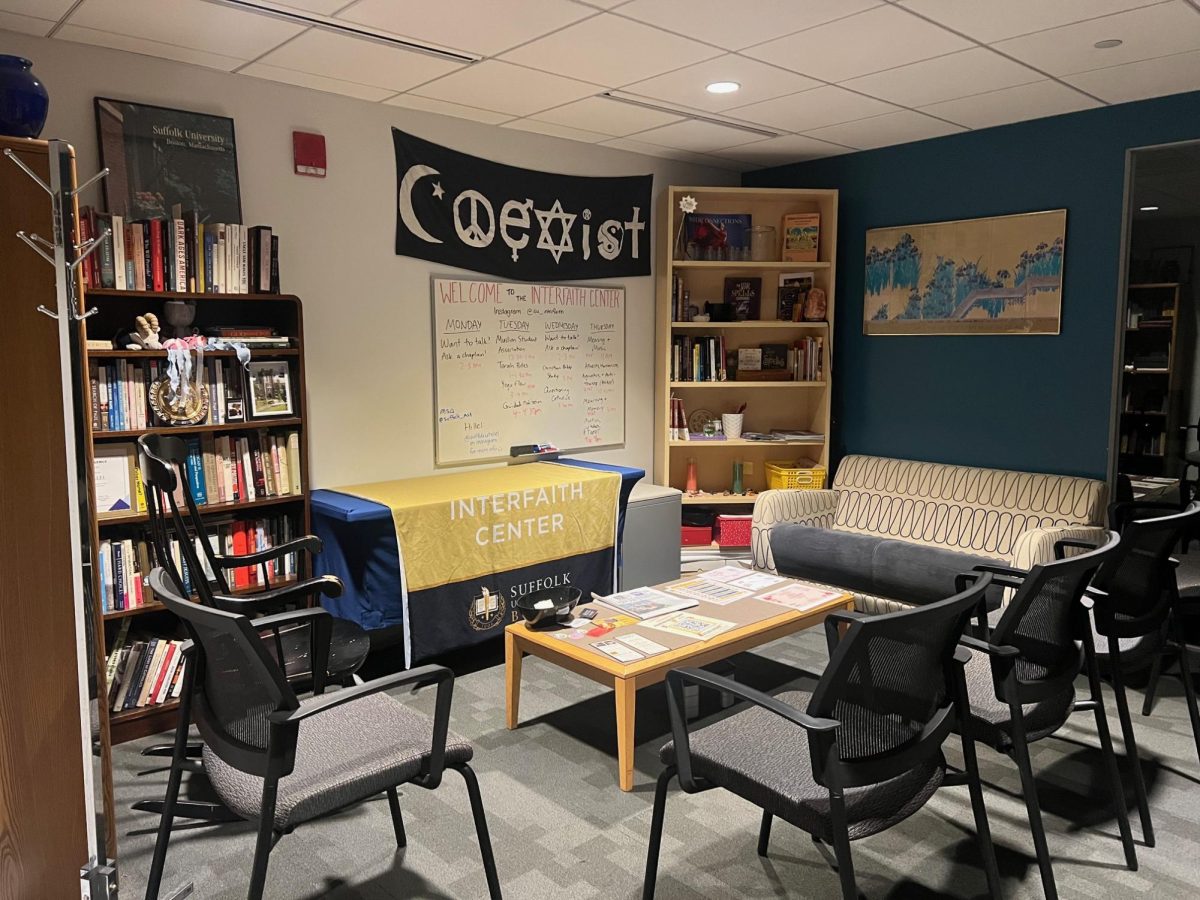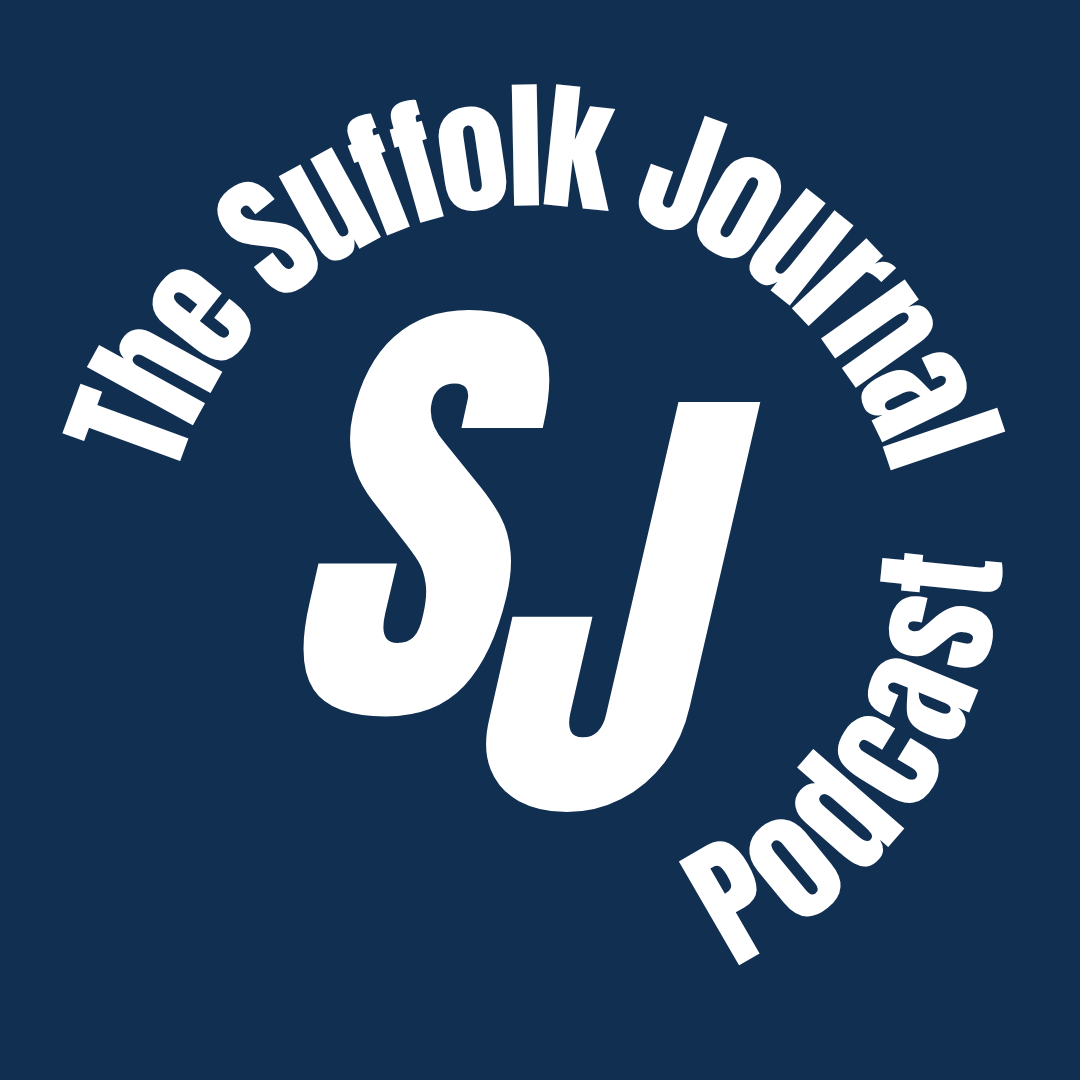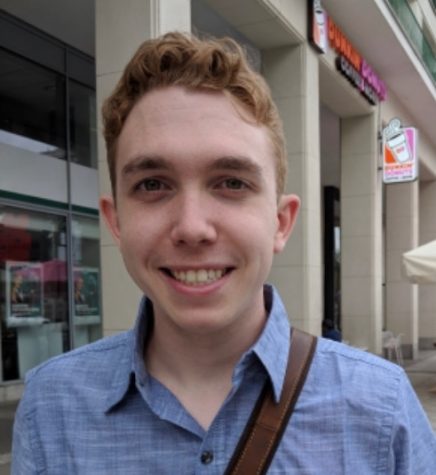David Paleologos, the Director of the Suffolk University Political Research Center (SUPRC) and acclaimed pollster, spoke to students and faculty this past Thursday about his newest poll of unregistered voters in the 2018 midterm elections.
The Ford Hall Forum event “People Who Don’t Vote: Their Impact and Importance in the 2018 and 2020 Elections” highlighted the primary findings of the SUPRC poll and invited attendees to discuss and draw their own conclusions from the data.
Both in polling success and voter turnout, Suffolk has been recognized nationally for its commitment to student representation.
This year Suffolk was named one of the “58 Best Colleges for Student Voting” in the Washington Monthly College Rankings.
After holding a voter registration during summer orientation sessions, the university brought in more than 200 new voters.
Traditionally, presidential candidates have spent a huge portion of their time and money on swaying voters that could still be persuaded to vote for a certain party, voters in so-called ‘swing states.’
“Today you have a much more polarized electorate. The Democrats are much farther left and the Republicans are further right, and look how narrow that grey area is of people who can be persuaded,” said Paleologos. “So what I have advised people is it is really less now about persuading people, you should not be spending money on trying to persuade people. You should instead be using your money in the field.”
The poll identified this polarization as a change that has been a long time coming.
With the 2008 presidential election unregistered or unlikely voters at 80 million, 2012 at 90 million and 2016 at 95 million, Paleologos predicted the 2020 elections to hit 100 million.
“When someone like Barack Obama comes along, he breaks the record. He gets 70 million votes, which I thought was amazing,” said Paleologos in an interview with The Suffolk Journal. “And then I was freaked out when I saw that 80 million people are saying they didn’t vote.”
During the question and answer period, three attendees asked for Paleologos to comment on Australia’s long-standing compulsory voting laws that have existed for nearly a century.
These laws encourage voting by putting penalties in place for citizens who choose not to vote.
The original incentive for the legislature was the record-low voter turnout in their 1922 parliamentary election which dropped below 60 percent for the first time in history.
The first election after the compulsory voting was introduced in Australia saw an increase in turnout from below 60 percent, to 91 percent and it has yet to fall below 90 percent since that time.
The United States presidential election turnout dropped below 60 percent as early as 1828.
Paleologos responded to these attendees by saying that he believes anything would be an improvement, but that he would want to see some polling to support its possible effectiveness in America.
Kutter McNeil, a Suffolk University junior majoring in Politics, Philosophy and Economics (PPE), was an active participant during the Q&A, voicing his opinion as an Arkansas native.
“You heard in there more than two people said, ‘make voting mandatory.’ In the south, that would never happen. The south already has a completely different history than the north. But to have [compulsory voting] there would be an absolute uproar from individuals,” said McNeil.
Dr. Rachael Cobb, Associate Professor and Chair of the Government Department introduced Paleologos and moderated the discussion afterwards.
Pointing out the voter registration booth located directly outside the event, she stressed the importance of voter engagement and what Suffolk is doing to involve students as much as possible.
“Having students and peers mobilize other students and peers is better than having professors saying this is what you should do,” said Cobb. “Having students come up with ideas to do it themselves is the best way to have them feel the power of voting.”
To both Paleologos and Cobb, change happens at the humblest levels. They encouraged attendees to start small and help get individuals in their community more involved in the voting process.
“There are people that could probably get a hundred people to go register, within their circle of friends,” said Paleogos. “But I’m saying let’s lower that bar, let’s just make it one. Can you find one person, by 2020, and I’ll tell you that will blow these charts wide open.”
Paleologos also spoke on getting older generations more involved in voting.
“It has to be peer to peer,” said Paleologos. “They need someone old, like me, to say, does this not matter? Do you not think that the taxes you pay, the healthcare you get, the education your daughter gets, is relevant? The pothole you gave to drive over on your way home everyday? If you’re not engaged, you’re just hurting yourself with a lot of these key issues.”
With the midterm elections coming up in early November, voter engagement is vital. According to the SUPRC poll results, non voters could soon outnumber the voter population, leading America into a future of uninvolved and uninterested citizens.




















